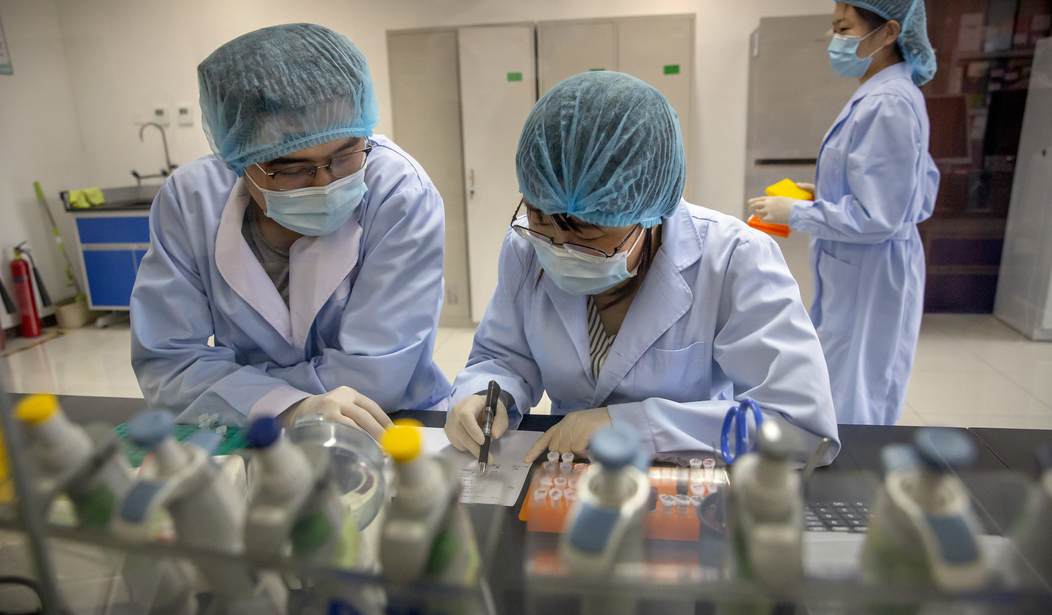A former board member of the Massachusetts Institute of Technology’s (MIT) McGovern Institute for Brain Research has resigned her position and written an op-ed in The Wall Street Journal offering revealing thoughts on, not just how American and other western universities have been working with China on scientific advancements, but also how these institutions shut down criticism of concerns over these partnerships, possibly even offering insights into how COVID-19 was unleashed upon the world.
Michelle Bethel, stepdaughter of the Institute’s namesake, said she had long felt uneasy with the partnership between MIT’s brain study institute and the Chinese government after she witnessed changes in the Asian nation following her seven years living there beginning in 2006.
I have real affection for China and its people. I moved to Shanghai with my husband in 2006. Over the next seven years, I gave birth to three children there and learned the culture as well as the language.
But times have changed. The Communist Party has reasserted itself in every aspect of China’s society—economic, social, cultural and, yes, scientific. Yet MIT and the McGovern Institute seem to have failed to scrutinize these developments. I believe that MIT doesn’t have a firm grasp on events in China or on the risks of partnerships with Chinese institutions in cutting-edge areas of science that are subject to misappropriation or abuse for military modernization or repression.
After reading a report in Reuters about a Danish partnership with China, and recalling that the Chinese military had “published articles declaring biology a new domain of warfare,” Bethel took her concerns to other board members. Their responses? Those kinds of concerns might be perceived as “racist” and that objections to working with China ran counter to the idea that “scientific progress is paramount.”
(Those searching for a reason why Anthony Fauci and The EcoHealth Alliance might have entered into an agreement to fund highly risky gain of function research at the Wuhan Institute of Virology may want to read the last part of that sentence again.)
Bethel’s op-ed also points out another disturbing fact: working with the Chinese government on some of these projects often requires a contractual obligation to aid and advance the Chinese military.
The Chinese Communist Party, in pursuing what it calls “military-civil fusion,” has passed laws stating that all institutions, including those in partnerships with Western universities, are obligated to serve the modernization of the Chinese military. This requirement and the Party’s opacity make it hard to ascertain if the PLA is using our research.
We already know a great deal about researchers in this country being deceptive about their ties to China. Charles Lieber, a Harvard department chair, was accused in January 2020 of lying about his connections to China and is set to go on trial in December facing six felony counts. Lieber will seek to prove he did not lie to the Defense Department and the National Institutes of Health about his relationship to China’s Thousand Talents Plan, a recruitment program FBI Director Chris Wray has noted is used “to entice scientists to secretly bring our knowledge and innovation back to China—even if that means stealing proprietary information or violating our export controls and conflict-of-interest rules.”
Other high-profile cases like Lieber’s include those of Yanqing Ye, a Boston University robotics researcher, who lied about being a member of the Chinese army while posing as a student; and cancer researcher Zaosong Zheng, who was arrested in a U.S. airport while allegedly trying to return to China with vials of biological samples in his luggage.
And there are others.
Bethel’s resignation and warning are coming at a time when the nation — and possibly the world — is starting to grapple with whether or not it thinks scientific progress is, in fact, paramount — and whether or not it should be comfortable serving as the lab rats in the grand experiment.













Join the conversation as a VIP Member